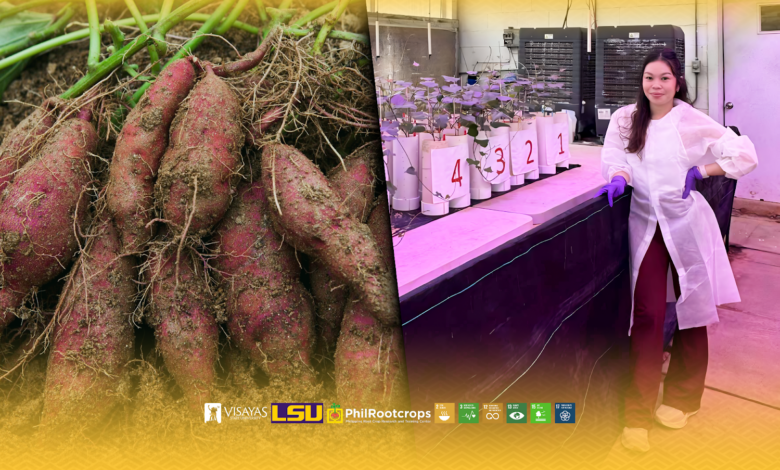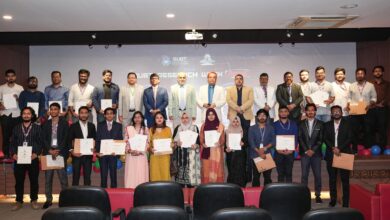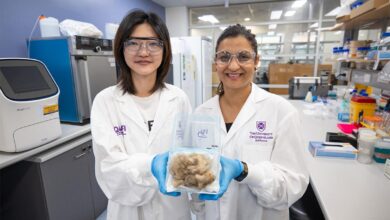VSU Graduate Students Discover Lead-Resistant Sweetpotato Cultivar in US Study

Graduate students from Visayas State University (VSU), who are conducting research at Louisiana State University (LSU), have identified a sweetpotato cultivar that demonstrates reduced absorption of lead from contaminated soils. This finding contributes to ongoing efforts aimed at improving food safety in areas affected by lead pollution.
Research Team and Methodology
The research team, guided by Mae Ann Bravo and mentored by Dr. Arthur Villordon, included professionals with expertise in plant physiology, chemistry, and soil science. The study investigated the response of two commonly grown sweetpotato cultivars to lead exposure, highlighting a significant concern for global food safety.
Sweetpotatoes and Environmental Concerns
Sweetpotatoes are cultivated in various countries, including the Philippines, and are particularly susceptible to environmental contaminants due to their underground growth. The research aimed to determine how different cultivars manage lead uptake, an area previously lacking extensive investigation.
Experimental Design
The study examined two well-known U.S. sweetpotato varieties, Bayou Belle and Beauregard, cultivated in controlled greenhouse conditions that mirrored lead levels found in agricultural soils in southern states such as Louisiana. Over 50 days, the researchers monitored root systems and measured lead accumulation in the edible parts of the plants.
Results and Significance
Results indicated that Bayou Belle demonstrated enhanced root growth and a reduced capacity for lead absorption, suggesting that its root structure may provide a natural barrier against lead entering the food supply. Conversely, Beauregard was found to absorb up to 300 times more lead than plants grown in uncontaminated soil.
Implications for Food Safety
The differentiation in lead absorption is significant for food safety, as highlighted by Bravo, who emphasized the potential for cultivating safer crops in contaminated areas. This research lays the groundwork for developing sweetpotato varieties with lower heavy metal accumulation and underscores the importance of selecting crop varieties suited to specific environmental conditions, especially in areas with known soil contamination.
Collaboration and Future Directions
Involving contributions from LSU scientists and VSU alumni, the research may have considerable implications for breeding programs aimed at creating lead-resistant cultivars adapted to local conditions in the Philippines. Support from PhilRootcrops, the Philippine Root Crops Research and Training Center, will facilitate exploration of how these advancements can be utilized domestically.
Addressing Environmental Challenges
Existing challenges such as soil contamination from mining and industrial pollution further highlight the relevance of this study, particularly for rural farming communities that depend on safe, edible crops. The findings illustrate the potential for evolving agricultural practices by utilizing inherent plant characteristics to address risks associated with environmental pollutants.
Alignment with Sustainable Development Goals
This research also aligns with several Sustainable Development Goals, including Zero Hunger and Climate Action, demonstrating a commitment to enhancing food security while addressing critical environmental challenges.
Original source: Visayas State University.




